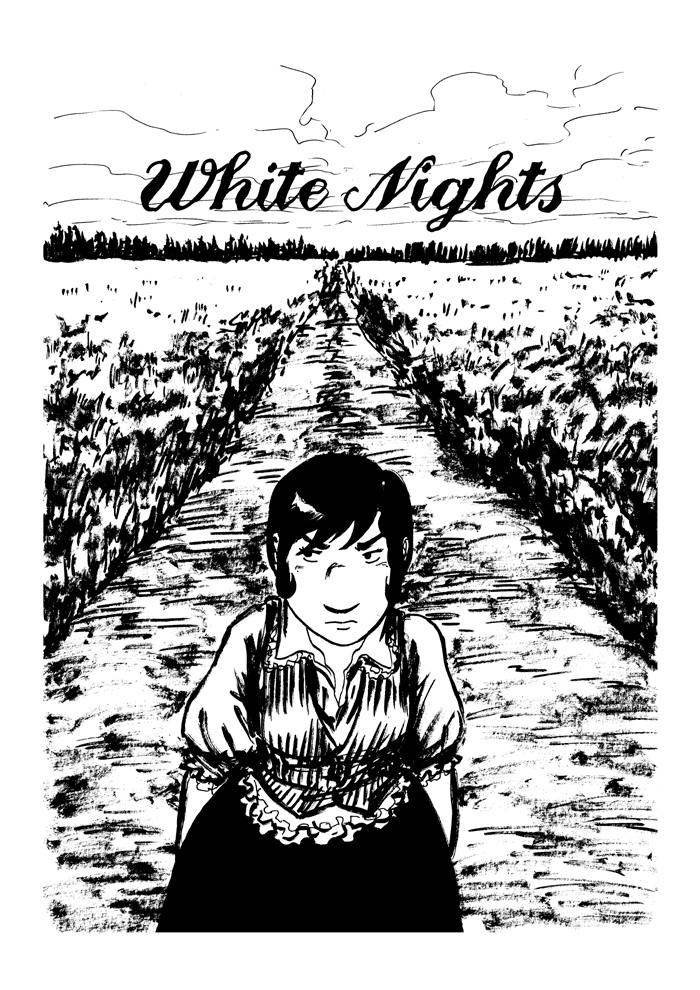
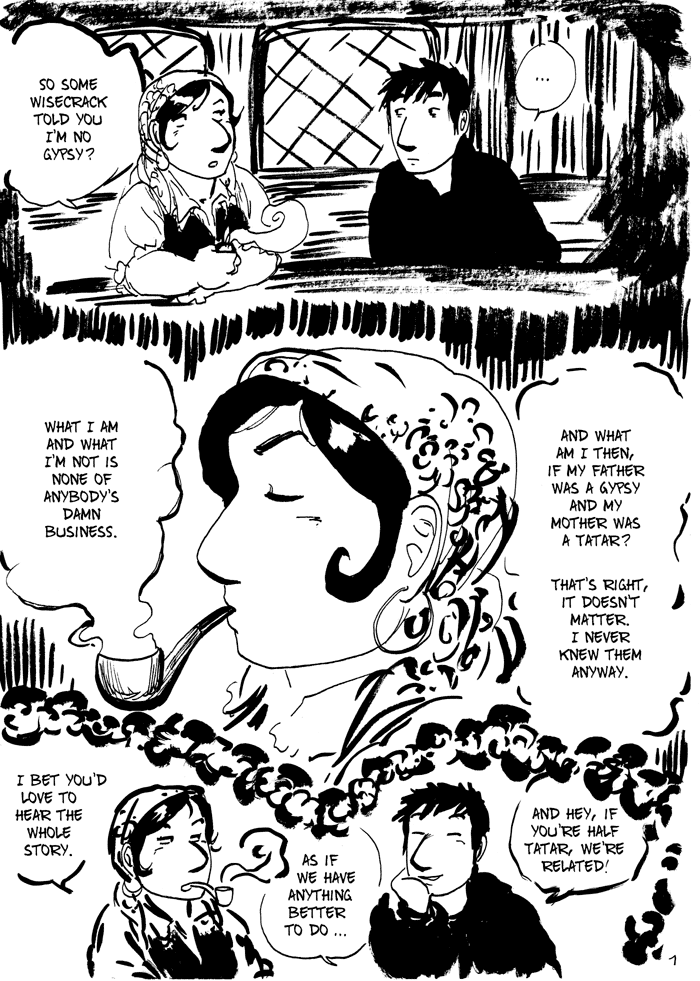

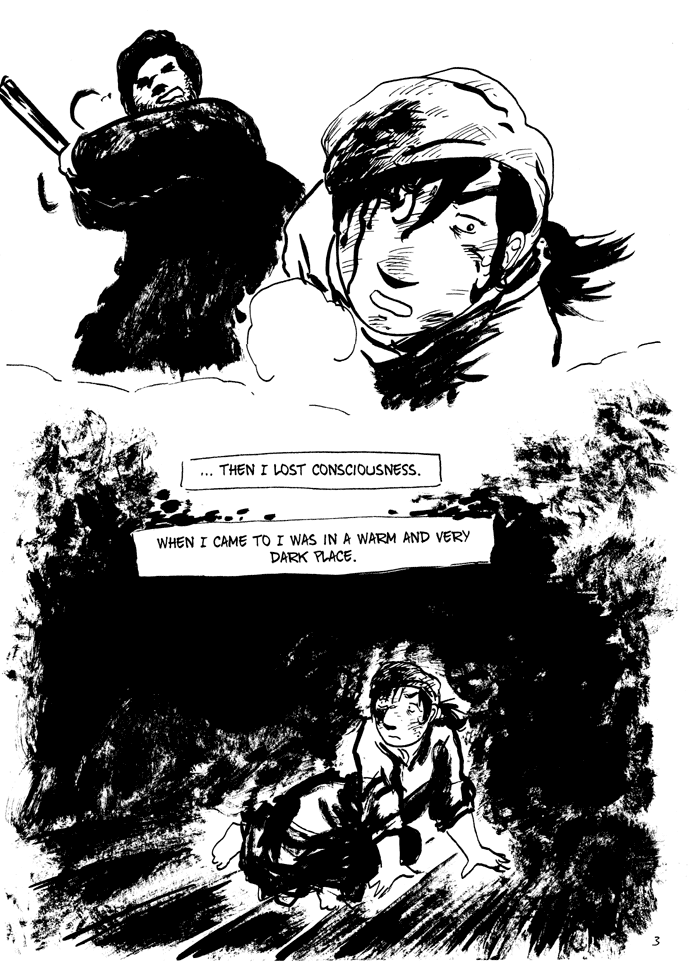
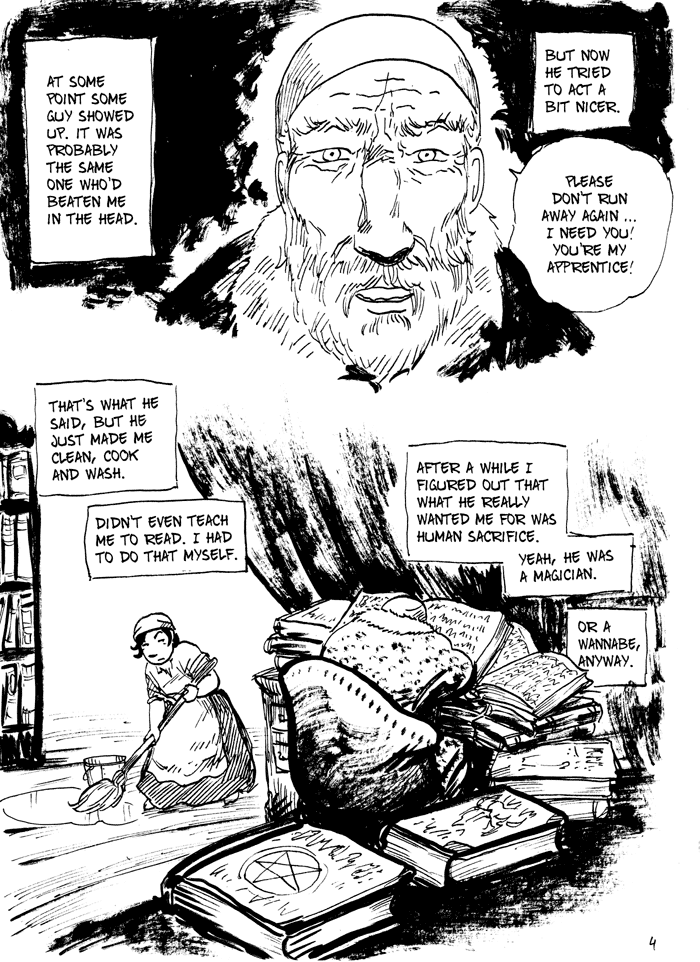
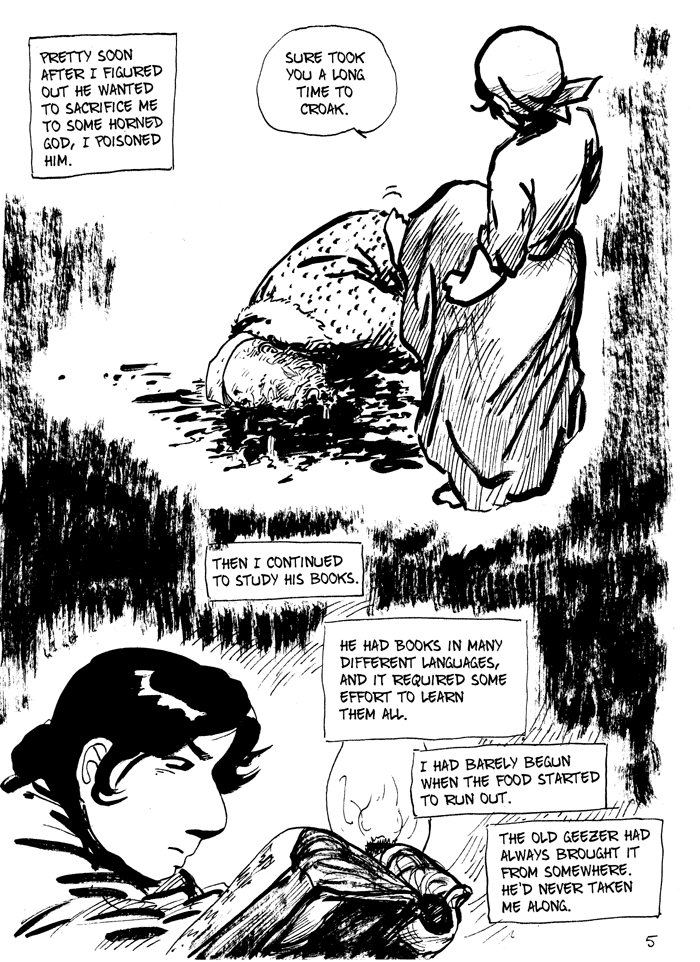
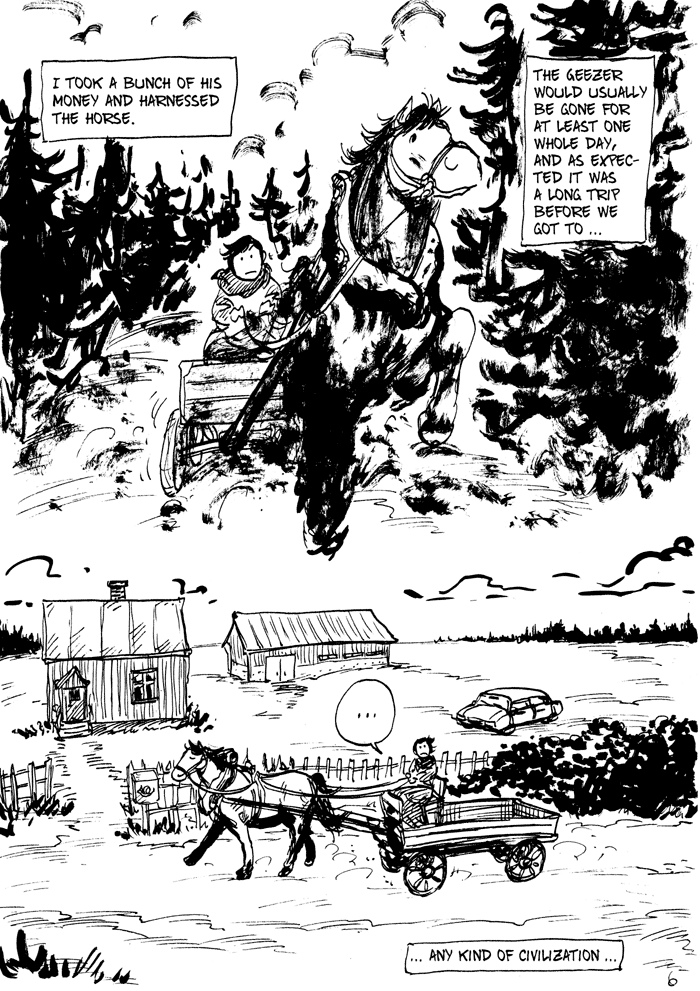
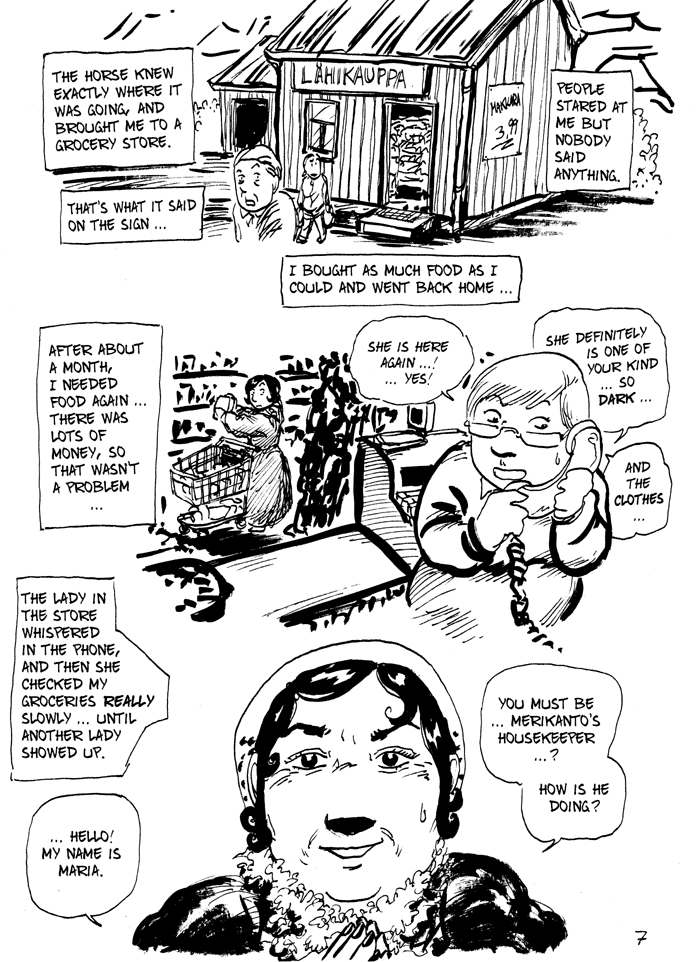
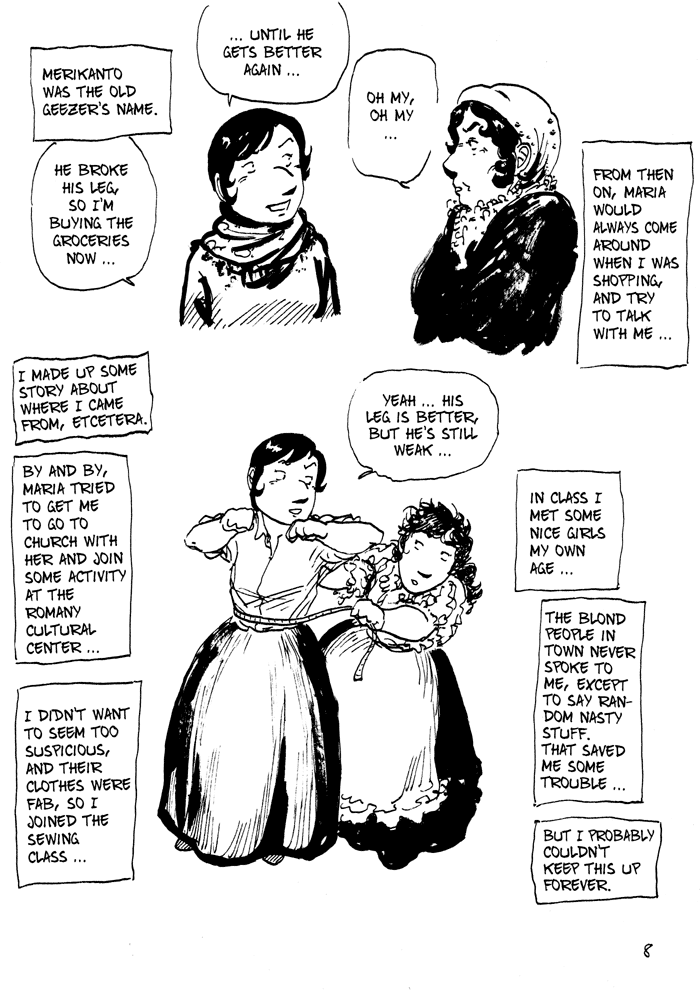
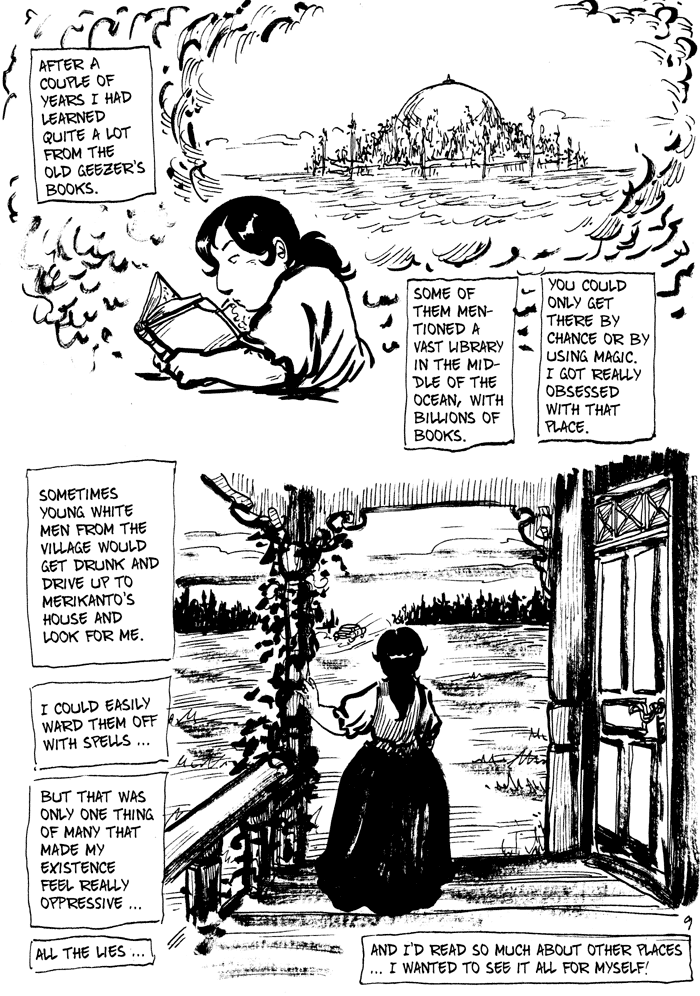
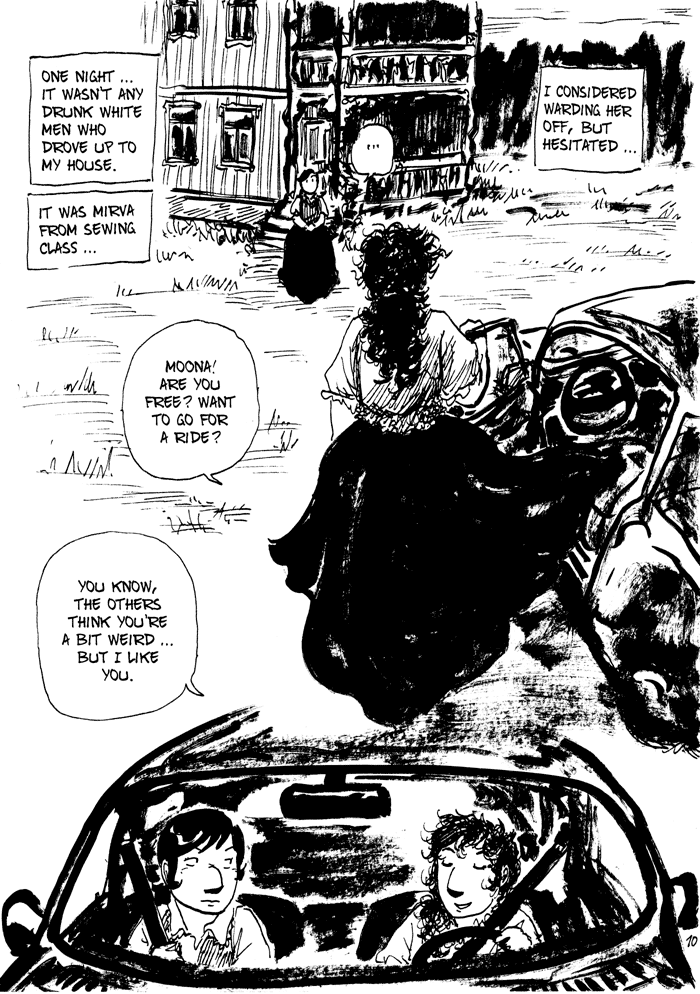
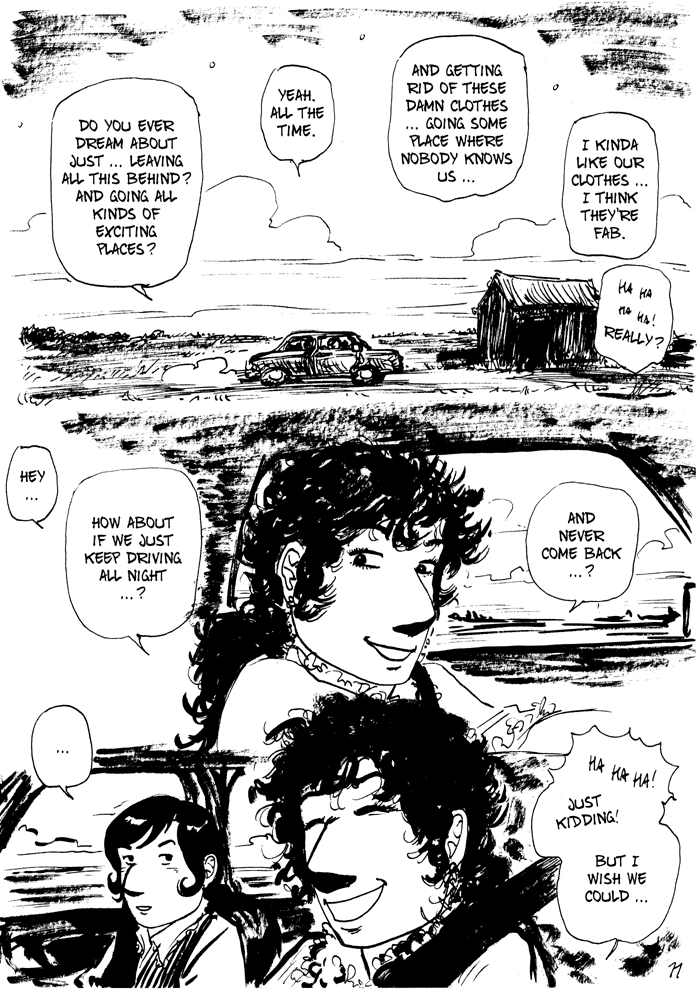
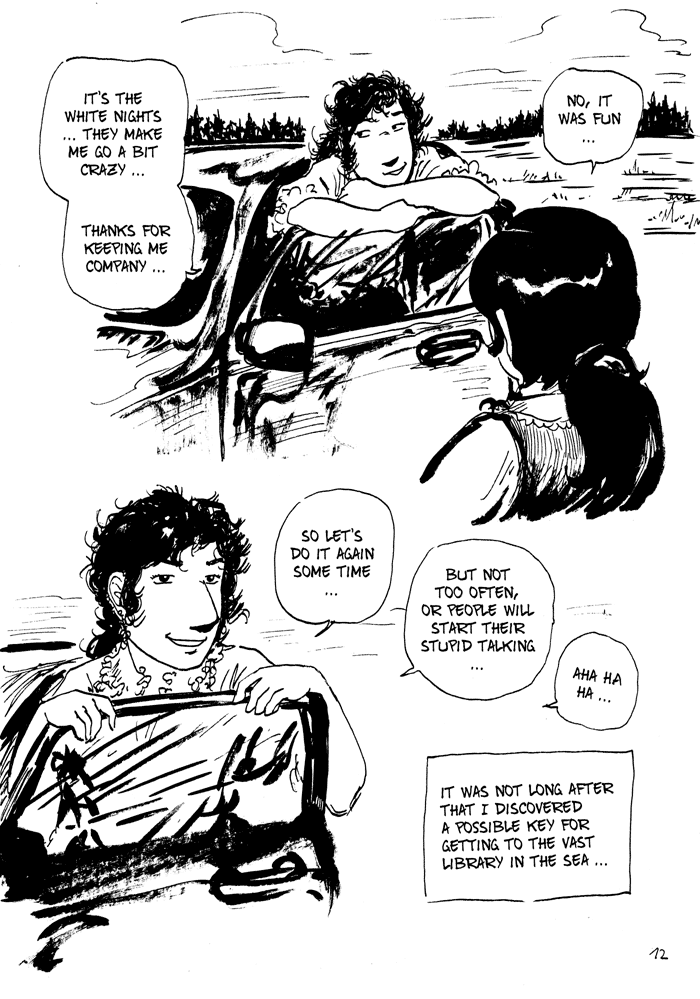
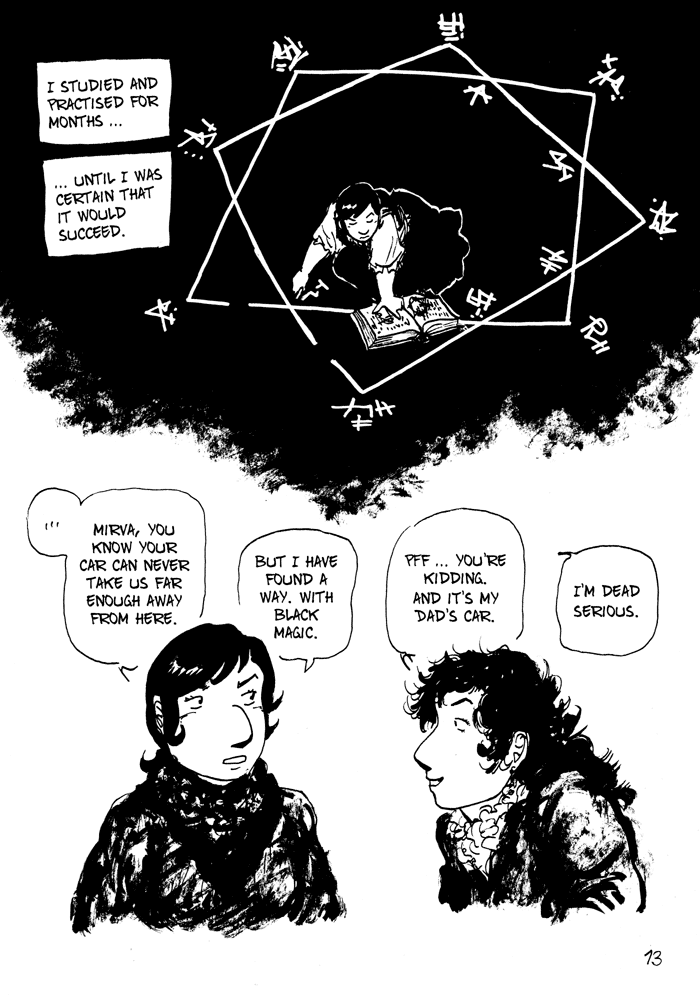
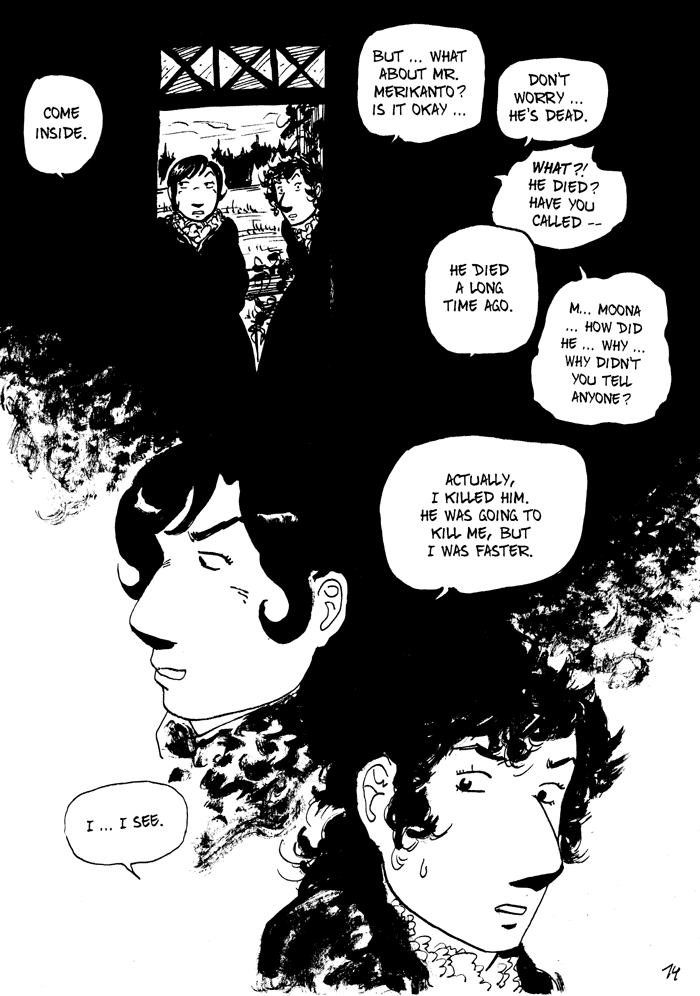
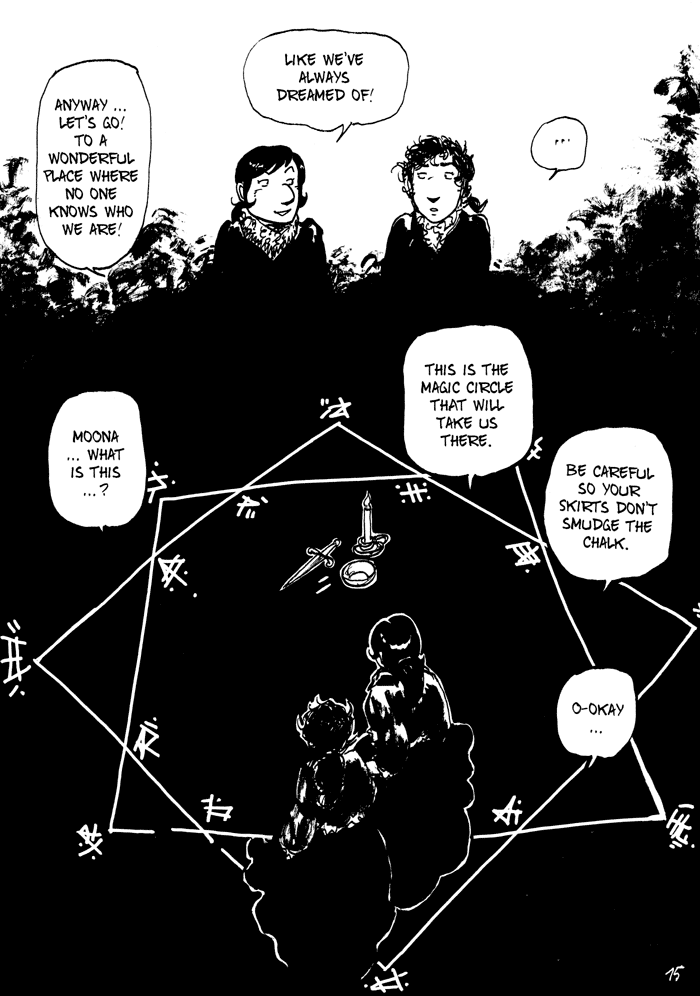
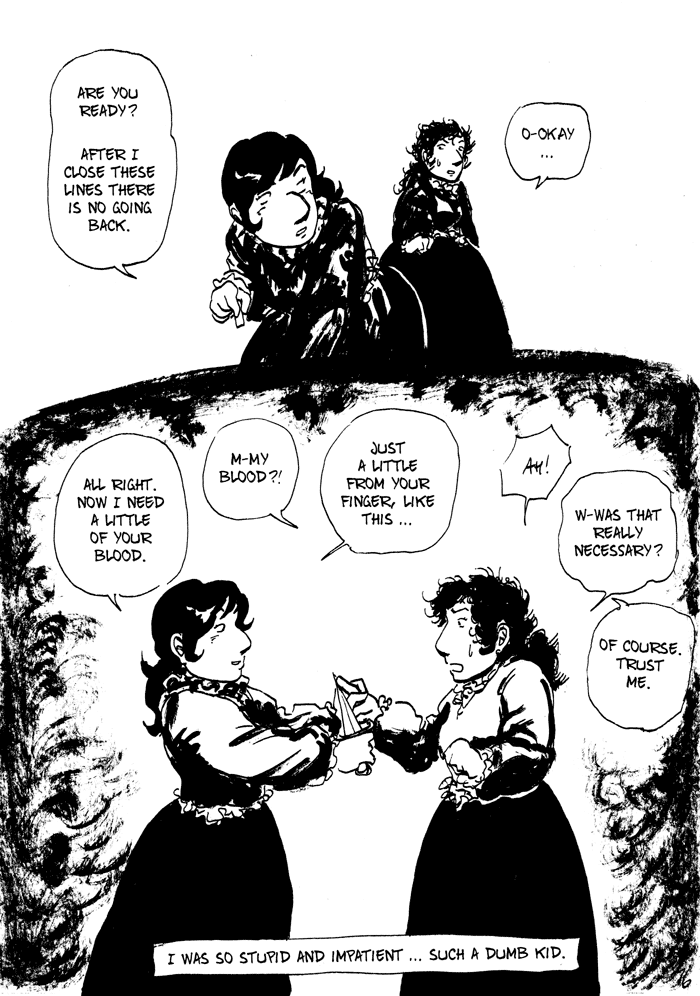
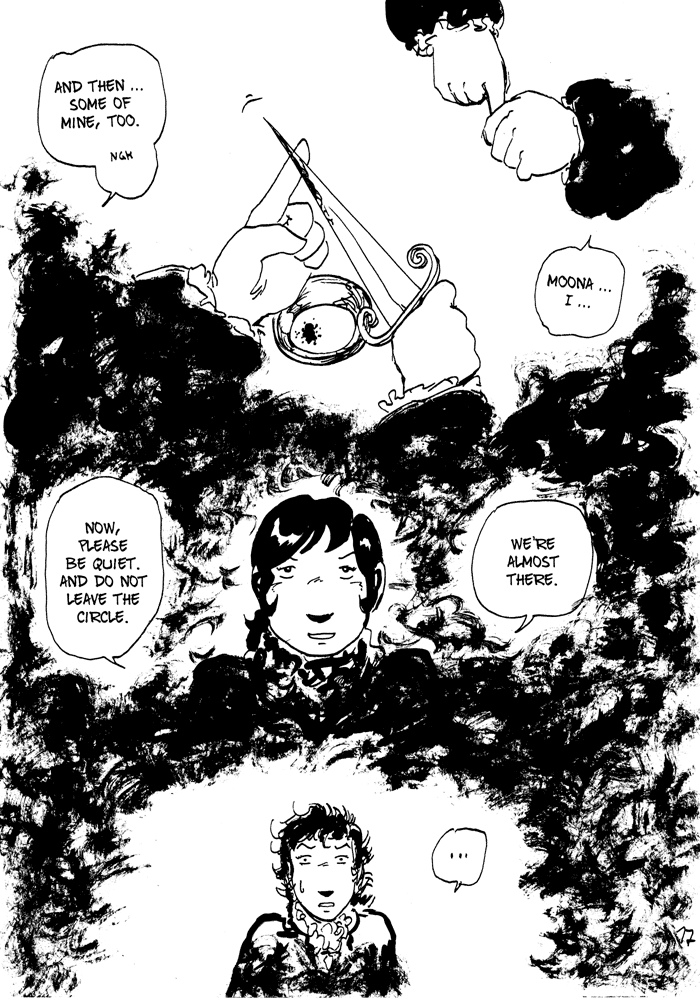
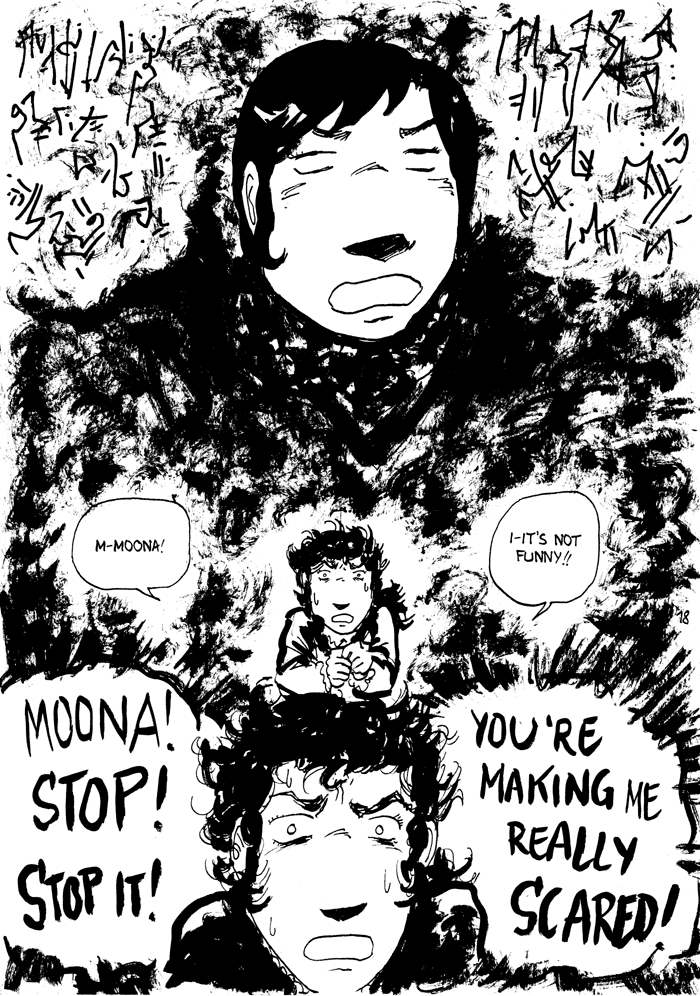
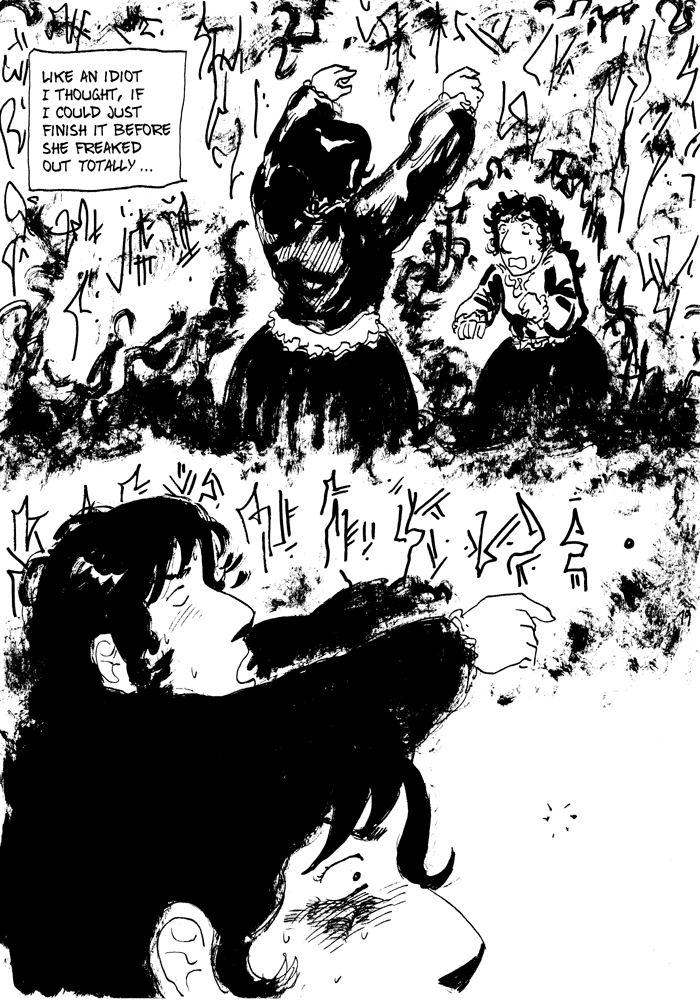
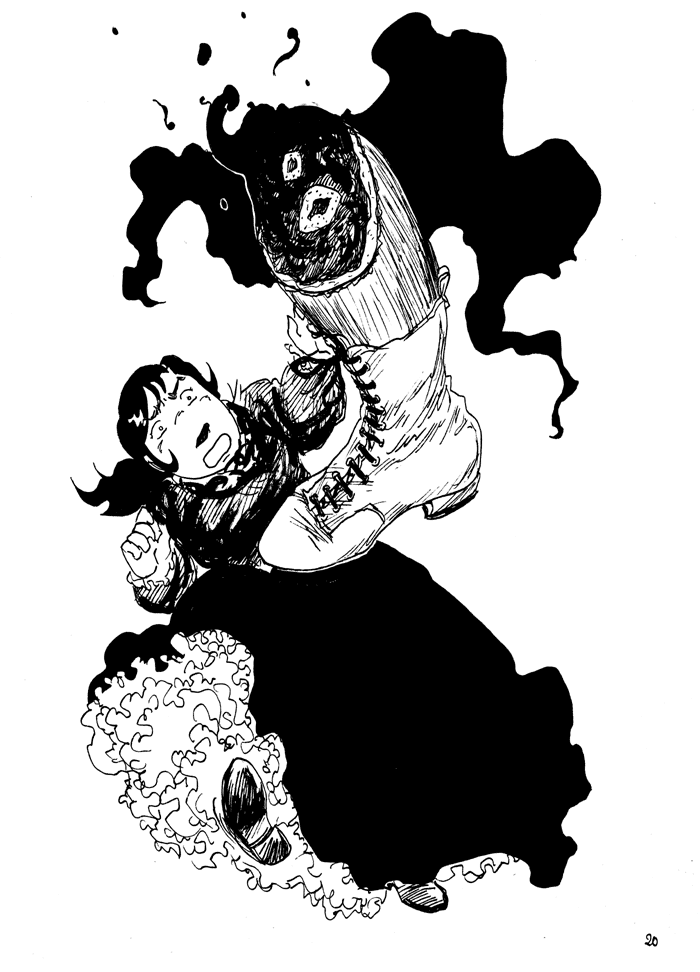
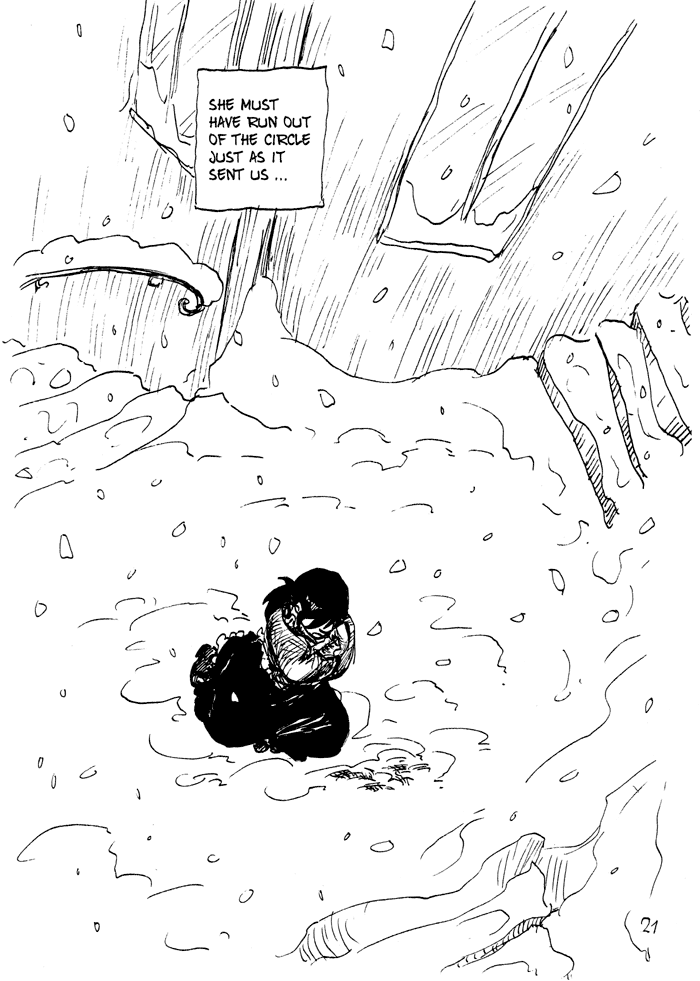
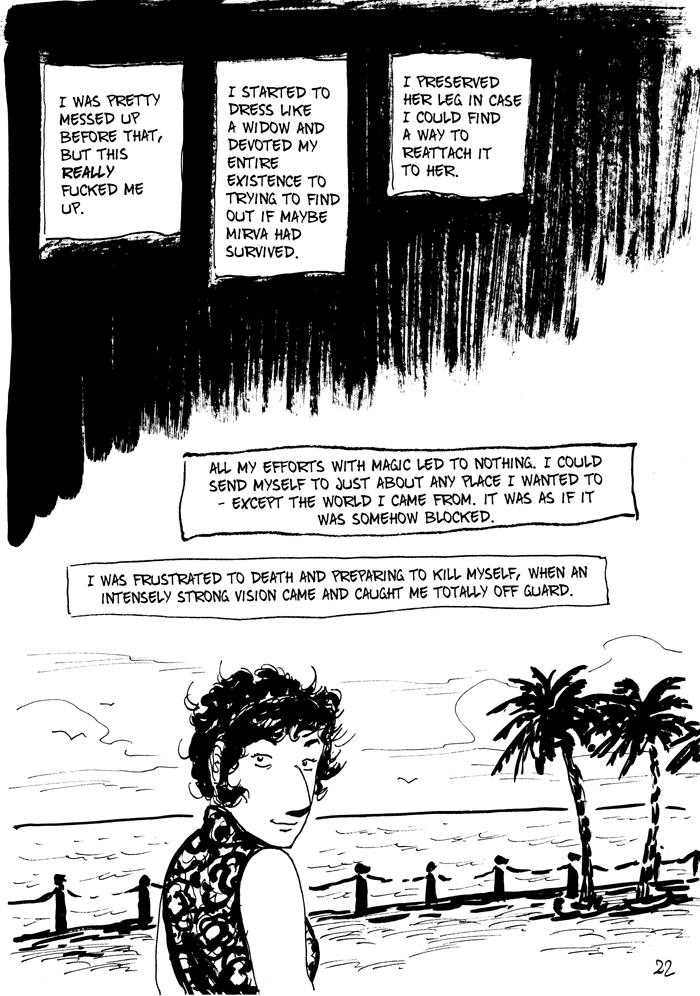
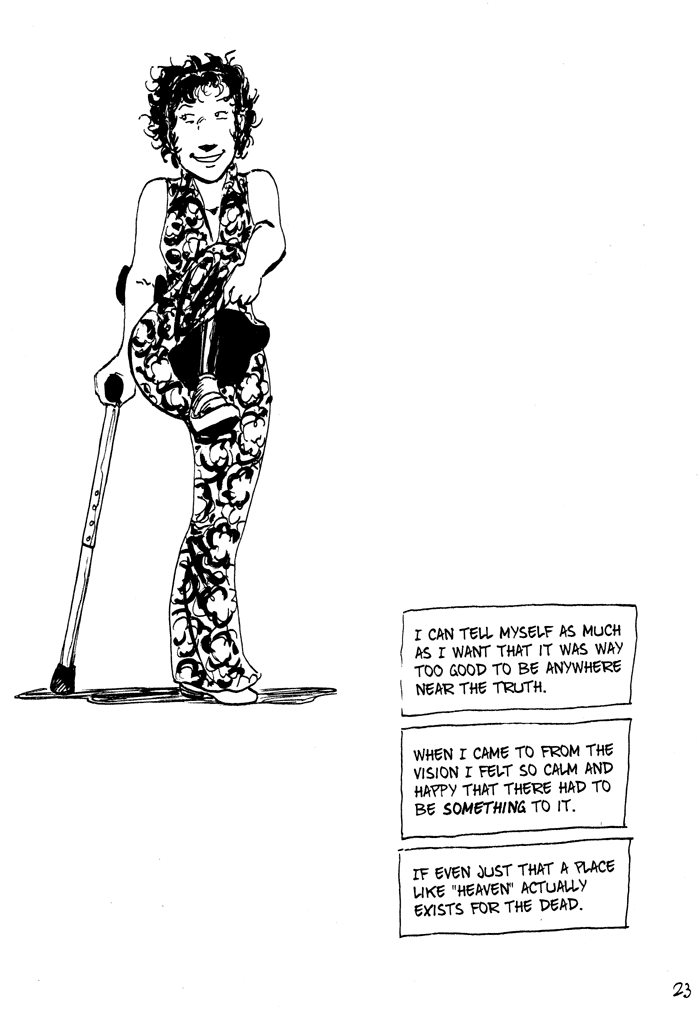
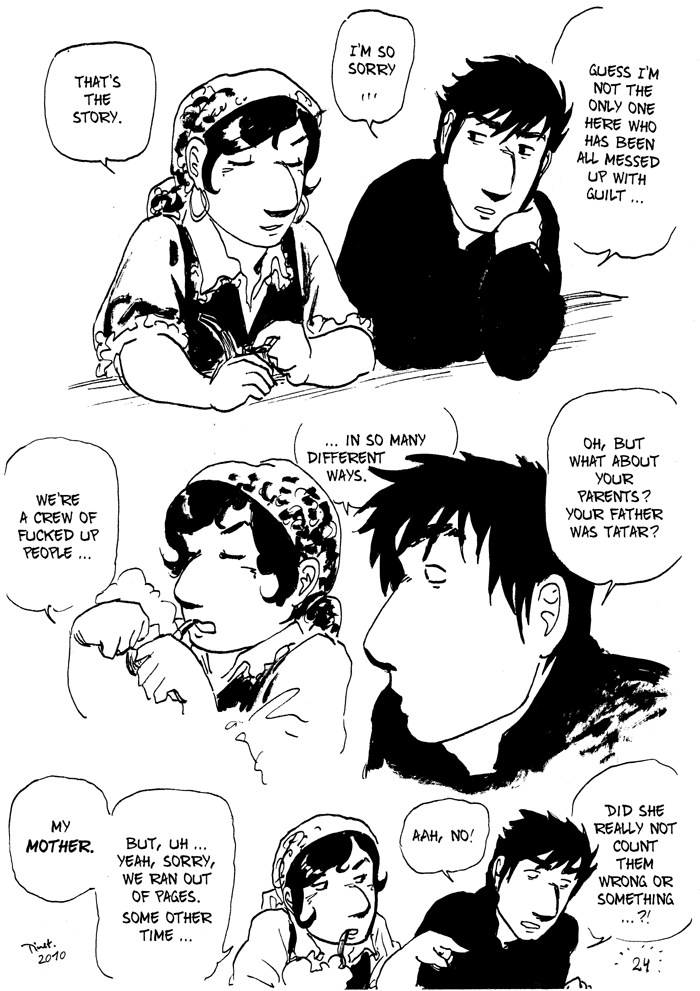
* * * Notes: This is a 24 hour comic, which I drew during 24 consecutive hours on December 1st and December 2nd 2010. (That's one reason why it's a bit weird.) I finished the actual comic in 20 hours, and then I remembered that maybe I should have a title page too, so it's actually 25 pages ... So, yeah, who would have guessed that
Samona comes from a parallel universe version of Finland in the 1970's? (Or ... DOES she ...?) Since it's a parallel universe, some things are of course different from our world. Some things about traditional Finnish Romany clothing, for one thing. In our world, Finnish Roma women always wear long sleeves. But since I like short sleeves, and also since I've read something about Romany rules concerning shame and body parts that goes something like this ... "The body of a menstruating woman is divided into two parts. Above the waist she is pure (vujo), and below the waist she is polluted (marimé). There is no shame connected with the upper part of the body, but the lower part is an 'object of shame' (baro lashav), because it is associated with menstruation." ... I really don't think you should have to cover your lower arms. Seriously, long sleeves get in the way when you do many kinds of work! And
yeah, Samona still dresses like a widow, according to the rules of her
world's Finnish Roma. That
basically means
that she wears a headscarf tied behind her neck with the ends loose. There
are also some rules about colours, but since my comics are black and white
that's not so important. The traditional wide velvet skirts of Finnish Roma can weigh up to 10 kg, and that's quite impractical when you do manual labour on a cramped ship, like Samona does. So she wears lighter skirts with much less fabric. When working on deck in wet weather she wears oilskin pants(!) like everyone else, but we haven't seen that yet ... Oh, and what's the deal with the expression "white people"? In Finland, common (and derogatory) terms for Roma and ethnic Finns are "mustalainen" ('blackie', 'black person'), and "valkolainen" ('whitey', 'white person'). The latter is only used as the opposite of "mustalainen". * * * |